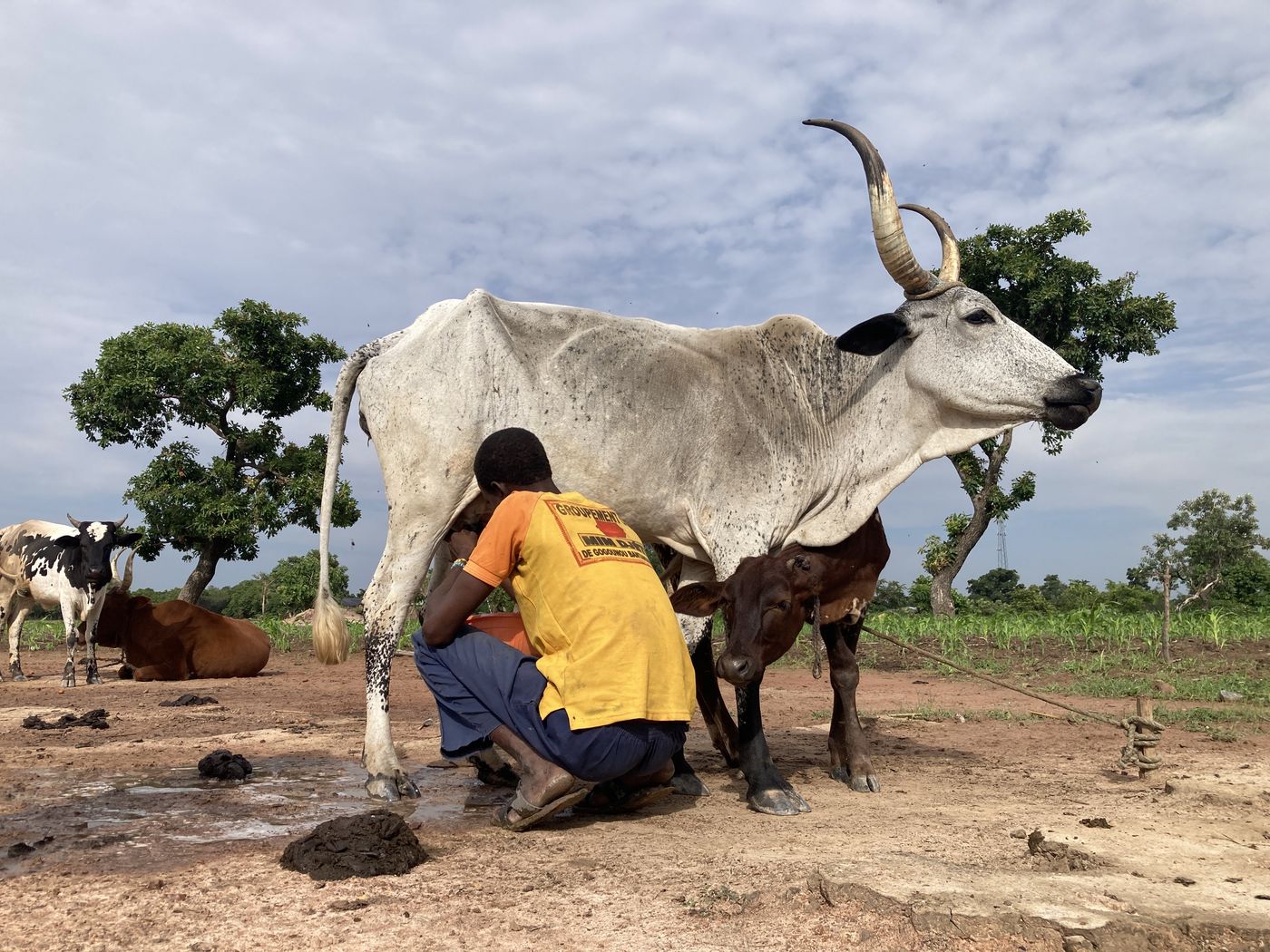
Boubacar Diallo milks his mother’s cow in the early morning hours outside Gogounou, Benin.
© James Courtright
doi:DOI 10.18449/2025MTA-PB32
Fulani communities in West Africa are being scapegoated for violence perpetrated by certain groups of semi-nomadic herders in response to a crisis in pastoralism. James Courtright explores how Fulani communities across the region are responding by organising, fighting or fleeing.

Boubacar Diallo milks his mother’s cow in the early morning hours outside Gogounou, Benin.
© James Courtright
Besides military operations, Niger’s President Mohamed Bazoum (2021–2023) used dialogue to address jihadist violence. However, the fragmentation and commercialisation of initiatives and a lack of coordination between civil and military measures hindered the promotion of sustainable peace.
doi:10.18449/2024MTA-PB31
Jihadist violence has spread from the Sahel to some – but not all – of the coastal countries of West Africa. While Togo and Benin are increasingly affected by attacks, the opposite is true of Côte d’Ivoire (and Ghana). But the Ivorian success stands on shaky foundations, as Denis Tull explains.
In the context of the renewed efforts to rethink Europe’s approach towards the African continent, as well as the continuing deterioration of security in the Sahel and the northern parts of the countries around the Gulf of Guinea, fresh approaches are needed to address the spread and roots of jihadism. In this Megatrends Afrika Spotlight, Jonathan Guiffard, Senior Fellow at the Institut Montaigne highlights the importance of modernising the agricultural sector as a key pathway towards to more inclusive development.
In northern Ghana, competition over resources has led to the emergence of antagonistic conflicts between ‘autochthonous’ farmers and ‘foreign’ herders. Climate change has acted as an exacerbating factor. New approaches are needed to reverse this worrying trend.
doi:10.18449/2022MTA-PB09